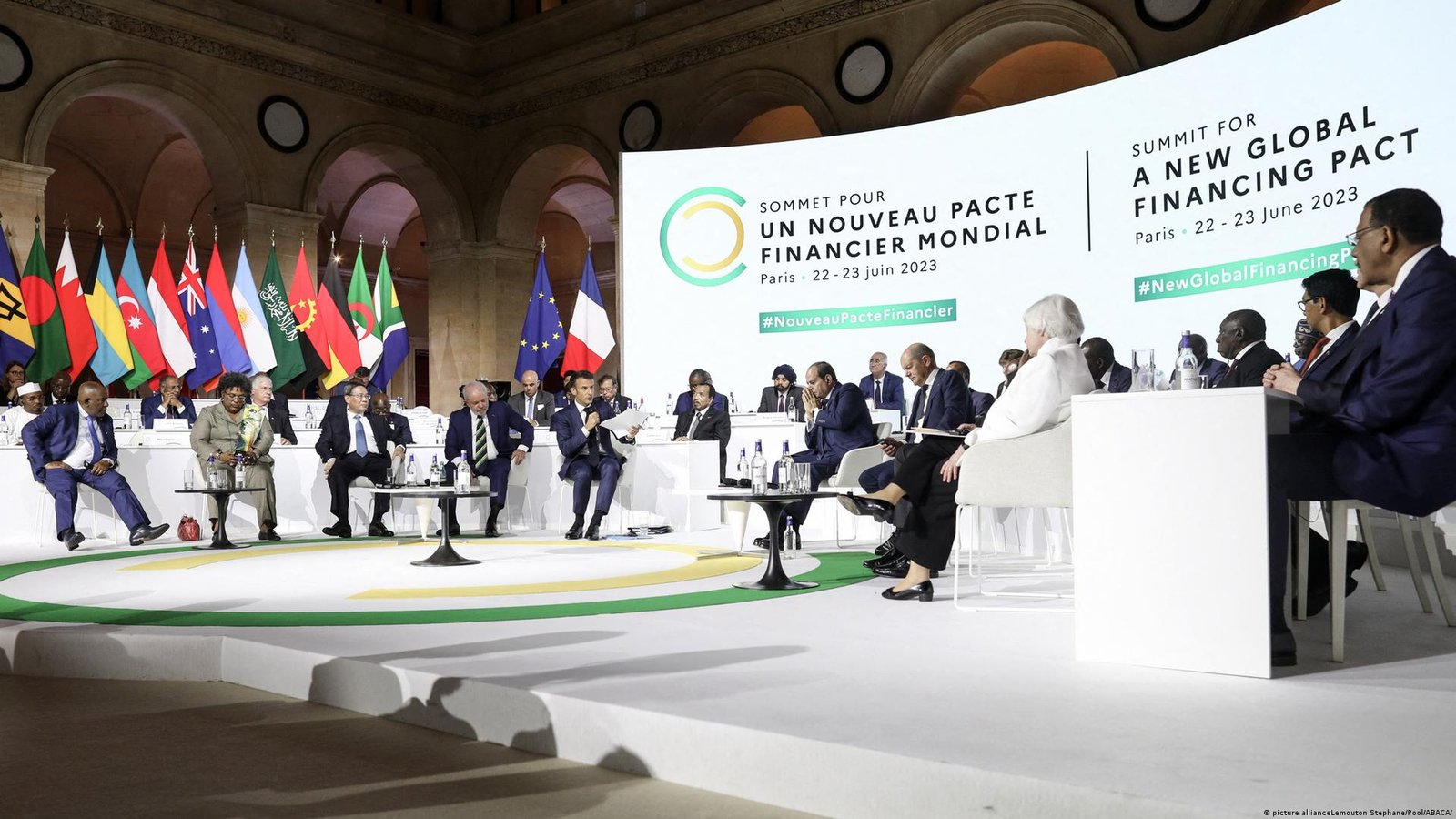The French president, Emmanuel Macron, called for international taxes on shipping, aviation, and perhaps even wealth to pay for climate action

A lifeline was thrown to poorer nations struggling with a mounting debt crisis at a global finance summit in Paris, but the plans fell short of the debt forgiveness programme that some had hoped for.
During the Global Finance Summit, which took place in Paris and ended on Friday, nearly 40 world leaders and the heads of major international organisations made progress on reforms that would help address the climate emergency.
The French president, Emmanuel Macron, called for international taxes on shipping, aviation, and perhaps even wealth to pay for climate action. “Help us identify all the nations that do not currently tax financial transactions or airline tickets. Help us organise so that there is international taxation at the July International Maritime Organization meeting to discuss a shipping tax,” he told French broadcast journalists.
The shipping tax would be considered by the Biden administration, according to US Treasury Secretary Janet Yellen, who did not support it. The new World Bank president, Ajay Banga, put forth a new vision that combines addressing the climate crisis with reducing poverty.
Addressing problems like climate, pandemics, fragility, and food insecurity, Banga emphasised the need for a world free of poverty and livable. The goal of this vision is to raise people’s quality of life and sense of hope.
Campaigners against poverty and climate change noted that the Global Finance Summit produced few concrete agreements because at least 52 nations are in debt distress as a result of rising interest rates and a strong dollar.
It’s disappointing, according to Walter Mawere, Care International’s advocacy coordinator in Somalia. The summit fell short of meeting the needs of those who suffer the most from climate change.
He cited Somalia’s worst drought in 40 years. Every day, we experience the worst effects of climate change. When I get home tomorrow, what can I say to them? This reality requires an answer from these international technical conferences, and they must hear our messages.
For nations experiencing a climate disaster, the World Bank will suspend debt repayments, but only for brand-new loans. For its current loans, the UK will follow suit, but only for 12 nations in Africa and the Caribbean.
The International Monetary Fund is providing $100bn (£80bn) in special drawing rights (SDRs) to poorer countries. France, Japan, and the UK have pledged $80bn, while the US could provide $21bn if Congress agrees.
IMF managing director Kristalina Georgieva stated, “We have a success story. We fulfilled a promise we made and provided something.
The SDR funds are distinct from the $100 billion annually in dedicated climate finance that has been promised to assist poorer countries in reducing their greenhouse gas emissions and preparing for the effects of the climate crisis.
Both are independent of the loss and damage fund, a new fund that is being planned to assist nations that are affected by a climate disaster. Some of the revenues from a global shipping tax, which some estimate could raise $5 billion annually, would go towards loss and damage.
Next week, the International Maritime Organization will debate a new shipping tax. Eamon Ryan, Ireland’s environment minister, anticipates a 50/50 decision.
At the summit’s conclusion, world leaders decided to transform foreign aid, the climate crisis, and investment to help countries escape poverty. Trillions of dollars in financing would be required, with the majority coming from the private sector and support from public funds.
In order to increase funding to developing nations and de-risk investment, the World Bank and other development banks reached an agreement. However, wealth disparities continue, and significant uncertainties surround future taxation of wealth, shipping, and aviation as well as other fossil fuels.
Paris-based youth activists claimed that by ignoring the primary cause of the issue—fossil fuels—the summit missed the mark. Rich nations were urged to give up fossil fuels and contribute to the global transition’s financing, but this issue received scant attention at the summit.
“If your house is on fire, the first thing you should do is stop pouring petrol and oil on the flames,” said Thunberg. You are only stoking the fires if you keep investing in more oil and gas and fossil fuels.